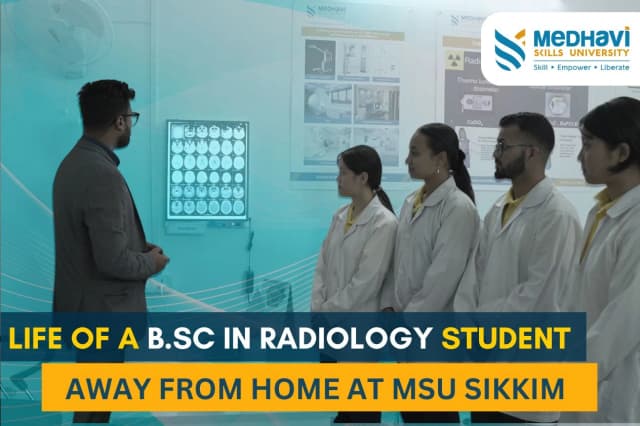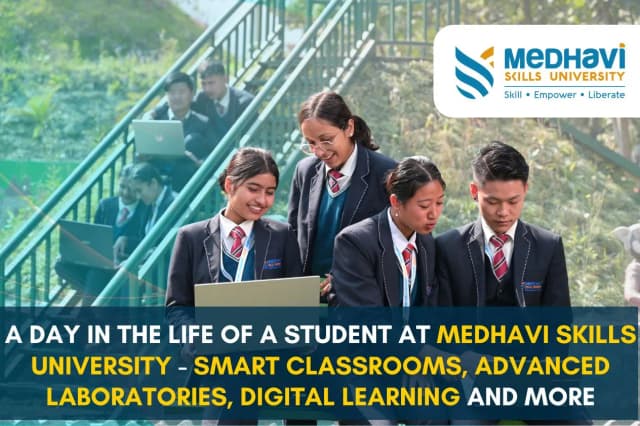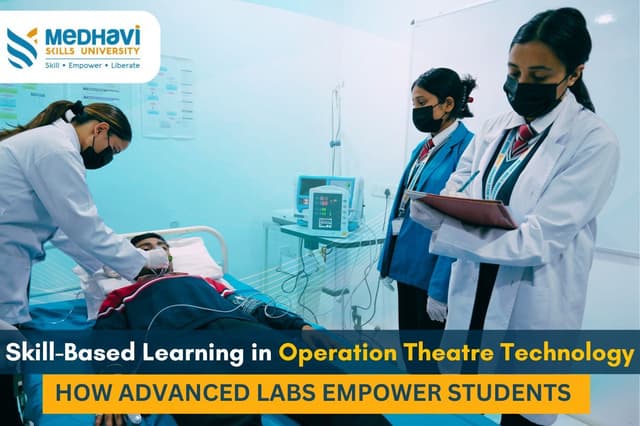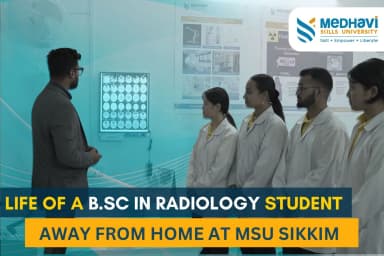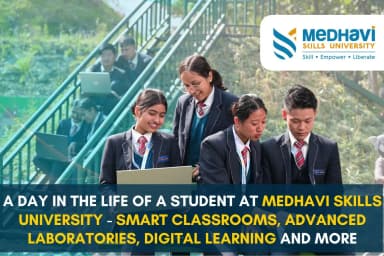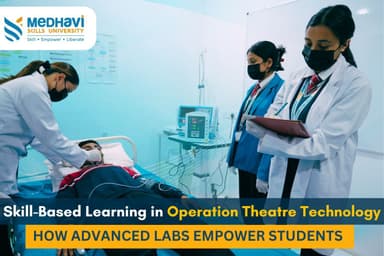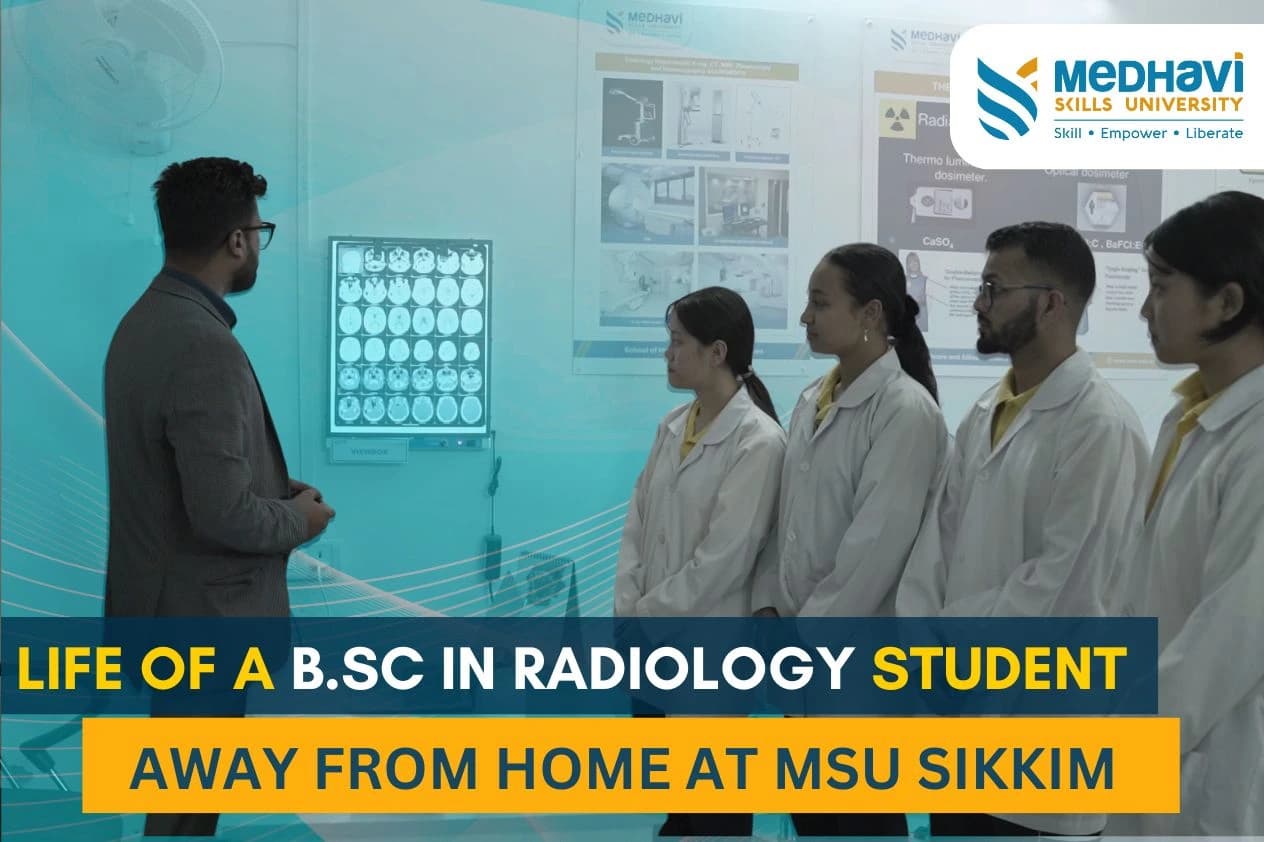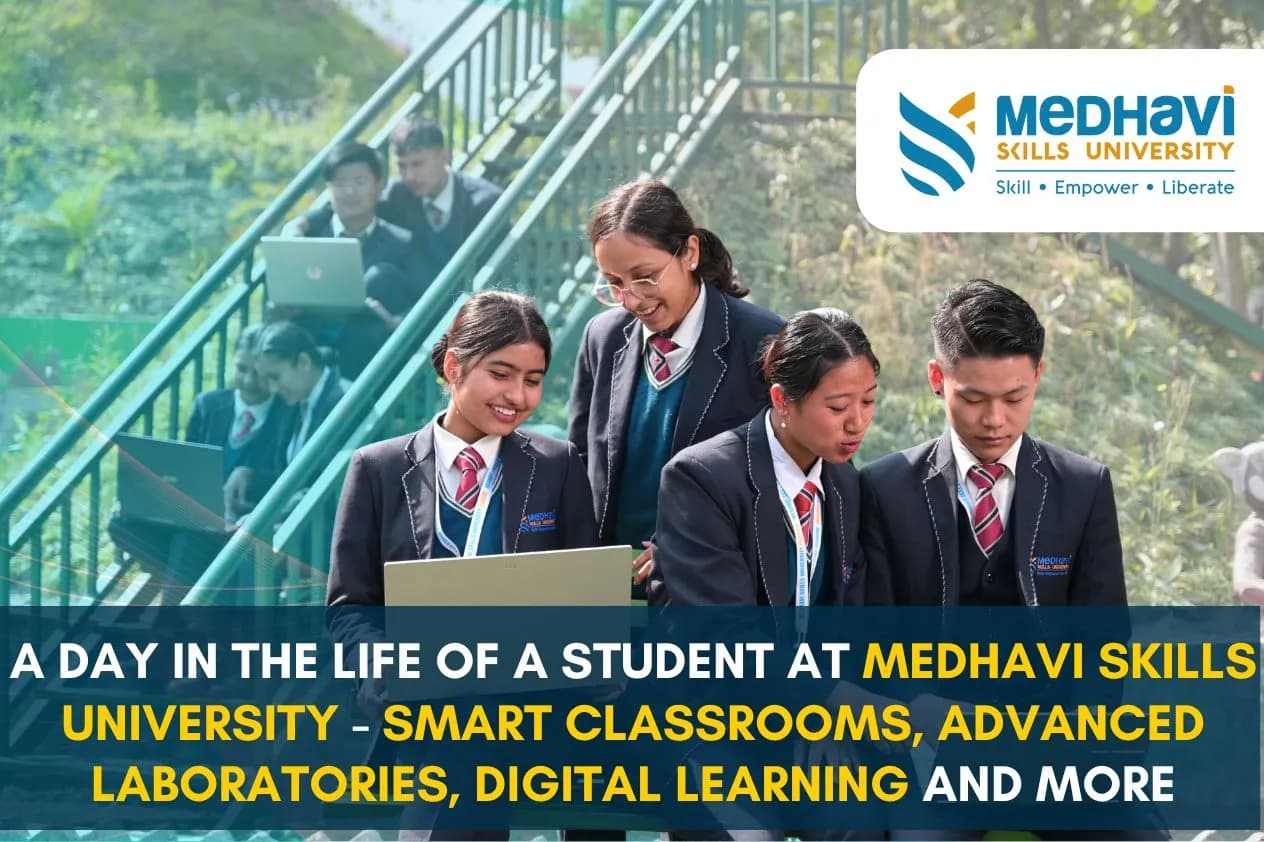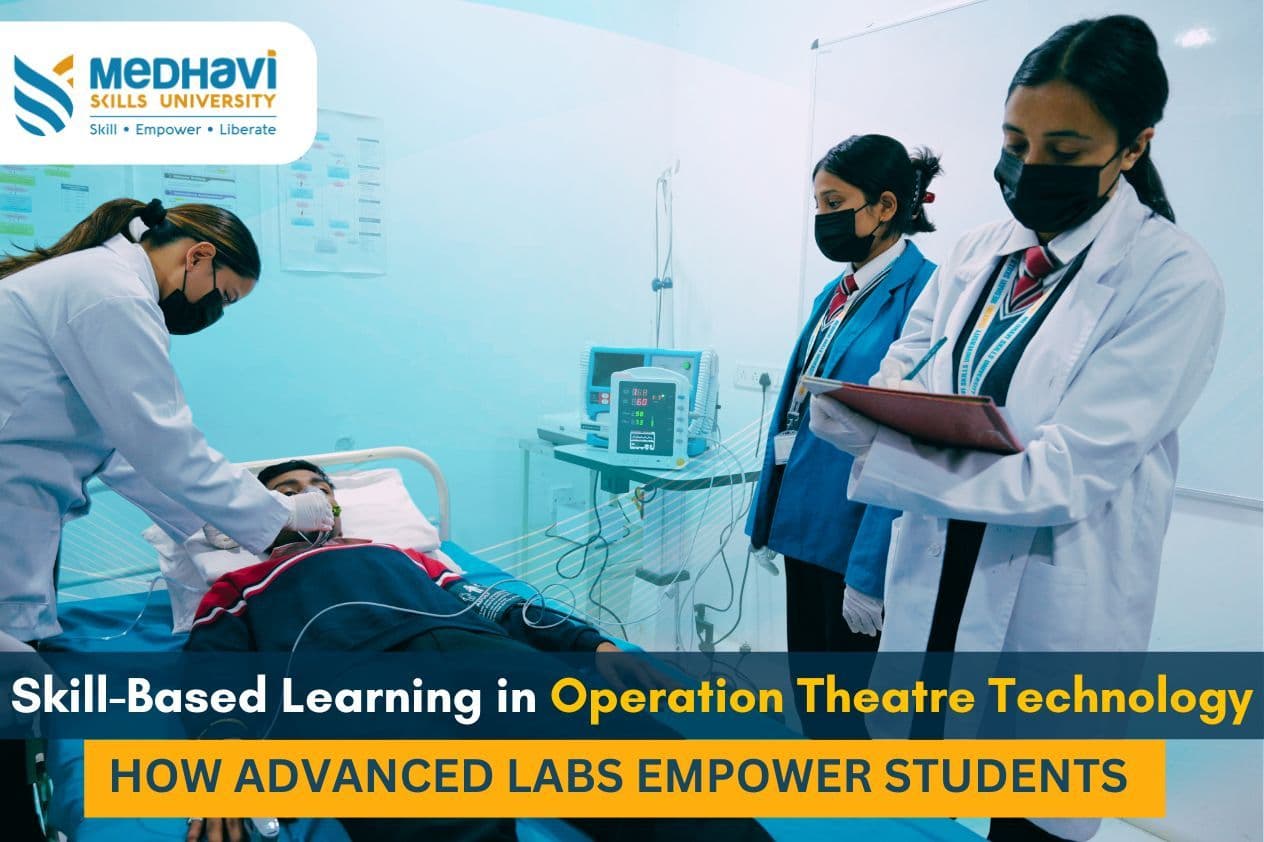According to the Economic Survey 2023-24, 65% of India’s fast-growing population is under the age of 35 and many lack the skills needed by the modern technologically evolving industry. It was also mentioned in the report that 51.25% of the country’s youth is deemed employable. In today’s world when everything is evolving rapidly, it is essential that the educational world also adapts accordingly. One way to make sure that the education world evolves is by introducing apprenticeship-embedded degree programs. This blog shares a detailed account of everything that one needs to know about apprenticeship-based degree programs.

What are Apprenticeship-Embedded Degree Programs?
Apprenticeship-Embedded Degree Programs (AEDP) enables a student who is pursuing an undergraduate degree program to pursue apprenticeship training as an integrated component of the degree program itself. It is an initiative of the University Grants Commission (UGC) to help and incorporate apprenticeship-based degree programs which are meant to combine both traditional curriculum with hands-on experience and on-the-job training for enforcing industry-academia collaborations in India.
Students pursuing traditional degrees usually graduate with theoretical knowledge and bookish learning, whereas apprentice-embedded degree programs focus on industry-relevant skill-based education and training. This kind of learning model is usually offered by skill-based universities because they have collaborations and partnerships with industry giants which play a vital role in imparting hands-on experience to the students.
Difference between regular degrees and apprenticeship-embedded programs
One of the main USPs of an apprenticeship-embedded program is its stark difference from a regular degree. Here are a few differences between the two -
| Factors | Apprenticeship-embedded programs | Regular degrees |
| Focus | Combines theoretical knowledge with a hefty amount of hands-on experience, on-the-job training, and practical learning | Focused on delivery theoretical knowledge via traditional learning systems |
| Education model | Emphasizes on practical learning modes like hands-on experience, on-the-job training, apprenticeships and more | More focused on lectures, textbooks, examinations and traditional learning modes |
| Practical Exposure | Extensive industry interaction and immersion because apprenticeships are the main part of the curriculum | Minimal practical exposure due to traditional mode of education |
| Industry Preparedness | Graduates are ready to work in the industry as the skills they acquire is already industry-relevant | Graduates may need additional training and certifications to make them ready to work in the workforce |
| Certifications | Offers industry recognized certifications along with academic degree making graduates more employable | Only the degree certificate is provided which recognizes the academic learning |
| Integration of NAPS/NATS | Students can earn a stipend during the tenure of their degree program while working as an apprentice or trainee | Students will not earn any stipend during the tenure of their program |
Understanding Apprenticeship Schemes
The National Apprenticeship Promotion Scheme (NAPS) and the National Apprenticeship Training Scheme (NATS) play a pivotal role by enabling the youths to get the necessary skills and experience to meet the global standards by promoting industry-academia collaborations in India. The aim of these initiatives is to bridge the gap between education and employability by incorporating more apprenticeship-based degree programs which provide better industry exposure and hands-on learning.

Understanding NAPS and NATS
National Apprenticeship Promotion Scheme (NAPS) - It was launched on 19th of August, 2016 to encourage employers to hire apprentices by providing financial incentives and in turn promote apprenticeship training across India. According to this, the government reimburses 25% (up to 1,500 rupees) of the stipend amount to the employer. It is meant for school or graduate dropouts, fresh graduates, diploma holders, etc. With an aim to bridge the gap between education and employability, it also enables the employers to build a skilled workforce by providing skill certifications to employees.
National Apprenticeship Training Scheme (NATS) - This was launched in the year 1969, under the Apprentices Act, 1961 to provide practical training to graduates and diploma holders through on-the-job training. The programs offered are usually 6 months to 1 year and are meant to enhance employability by promoting industry-academia collaborations in India. According to this, the government reimburses 50% of the stipend amount to the employers.

Benefits of apprenticeship-embedded degree program to the students -
- Higher Education Credentials - Students will be eligible for Diploma, UG or PG programs from UGC recognized universities. The credit system is also flexible which helps accumulate and transfer academic credits.
- Learn and Earn - Monthly stipend provided to the students gives financial independence which encourages practical learning while supporting financial expenses.
- Degree with Work Experience - Students earn a degree along with hands-on experience in industry settings which enables them to enter the workforce with both practical and theoretical knowledge.
- Career Growth Prospects - Students having work experience along with education enables them to experience better salary opportunities and better career prospects.
- Flexible Learning & Joint Certification - Flexible learning with programs available in Face-to-Face, Online, On-site, and On-the-Job learning modes.
Benefits of apprenticeship-embedded degree program to the employers -
- No Employer - Employee or Direct Relationship with Trainees - Employees under this program will not be under any employment contract or labour contract hence laws pertaining to labour or employment are not applicable.
- Exemption under CSR - Money spent for the stipend of the trainees can be considered and shown under CSR. Contributing to nation building by workforce development through education and skilled manpower.
- Workforce Continuity & Productivity - It ensures retention of employees because unlike contractual workers, apprenticeship-based degree programs student/trainees continue for 2-3 years. It also increases the productivity of the employees because they undergo training.
- Cost Cutting and Ease of Recruitment - The employers do not have to pay PF or ESI to the employees because they are trainees under apprenticeship-based degree programs which helps in cost cutting. Also the perk of higher education lures candidates in and makes recruitment easier.
- Control over Absenteeism and Attrition - Since the candidates get the benefit of pursuing higher education, upskilling, and career progression, the employees become grateful towards the organization and more devoted.
- Flexibility to Customize the Curriculum - Employers may embed existing training curriculum and content/learning management systems with the university curriculum.
Why choose MSU for Apprenticeship-Embedded Degree Programs (AEDP)?
Medhavi Skills University is an UGC and NCVET recognized skill university. MSU offers the best work-integrated learning programs by providing various unique perks which sets it apart from any other traditional university. It stands out as the 1st university in India to integrate NEP 2020 in an industry-led format. Recognized as the Best Brand in Education by the Economic Times and one of the four Indian universities acknowledged as an “Awarding Body” by NCVET, MSU is a leader in outcome-based, skill-centric education.
With providing benefits to the students, it also provides various other incredible benefits to the employers. Here are some of the many reasons why one should choose MSU for AEDP programs -
- Curriculum Customised to Suit Skill Competency Needs of Industry Partners - The curriculums are designed in collaboration with industry experts to meet specific skill requirements, ensuring practical skill development and necessary theoretical understanding.
- GoI recognized Degrees/Diplomas/Certificates - A wide range of university programs offer hands-on experience with earning opportunities, providing financial support and enhancing employability, in line with NEP 2020 and NCrF. Certificates from NSDC/UGC/SSCs/Industry
- Flexible Blended Learning Models and Examinations - The programs are accessible, online, self-paced, and practical learning modes and exams that provide convenience for learners and align with daily work schedules.
- Embedding Work-Integrated Programmes to Reduce Attrition - MSU combines academic learning with hands-on apprenticeships promoting industry-academia collaborations in India to improve job satisfaction and lower attrition by aligning with industry roles and expectations.
- Increased Productivity with Relevant Skill Training - Candidates have better productivity with relevant skill training from the get go because of workforce development through education. Tracking of performance becomes easier with practical and theoretical examinations.
- Programmes for Recruitment (Talent Pipeline) - Creates benefits for fresh recruits and existing employees that attract better talent to the company because of skill certifications for employees.
Some AEDP programs provided by Medhavi Skills University -
- MSU in collaboration with AEQUS offers B.Voc in Aerospace Manufacturing Technology.
- MSU in collaboration with ISGJ provides BBA and MBA programs in Jewelry Design and Manufacturing.
- MSU in collaboration with The Delhi School of Communication provides AEDP in Media and Communication.
- MSU in collaboration with Digital Bridge International offers new-age BCA programs with specializations in Artificial Intelligence, Machine Learning, Full-stack Development, Data Science, UI/UX Design and Software Development.
- MSU in collaboration with LP Gimsat provides BBA in Retail Management.
- MSU in collaboration with Polaris School of Technology provides B.Sc. Computer Science in AI & ML.
Medhavi Skills University’s apprenticeship-embedded degree programs provide the perfect blend of theoretical knowledge and practical hands-on learning making the programs offered the best work-integrated learning programs in India.

